Pre-Conference Workshops
Make the most of your SEMM Forum Conference experience by joining us for one of eight pre-conference workshops!
All of these exclusive half-day programs are designed specifically for SEMM professionals.
Space is limited. Please register early to avoid disappointment.
Date & Time
Morning Sessions
Building Hope Circuits in SEMM: Re-wiring Systems for Human Flourishing
- Develop a shared vocabulary to engage in systems change illuminated by the guiding values of equity, empathy, justice, creative democracy, and civic intelligence.
- Equip attendees with the tools and resources necessary to take back to their contexts – departments, divisions, campuses, academic adjacent organizations, associations – to re-wire systems in real time this week, this month, and this year.
Learn more
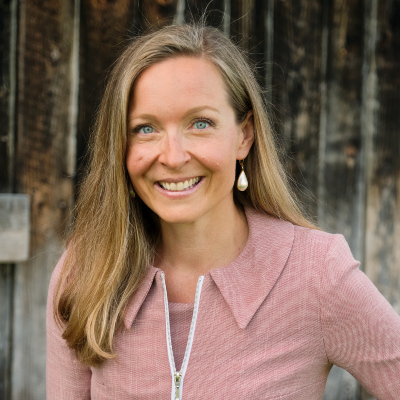
Dr. Jessica Riddell
Stephen A. Jarislowsky Chair of Undergraduate Teaching Excellence
Full Professor, Department of English, Bishop's University
3M National Teaching Fellow (2015)
Author of Hope Circuits: Rewiring Universities and other Organizations for Human Flourishing (McGill-Queen's University Press, 2024).
Advancing Indigenization, Inclusion, Equity, Diversity, Accessibility + Anti-racism (I-IDEAA) in Post-secondary Education | Part One: Changing Leadership
- Discover models of educational leadership and explore their relevance to I-IDEAA in post-secondary education
- Examine and evaluate where the intersection of personal and professional values surfaces tensions for leadership practice
Learn more
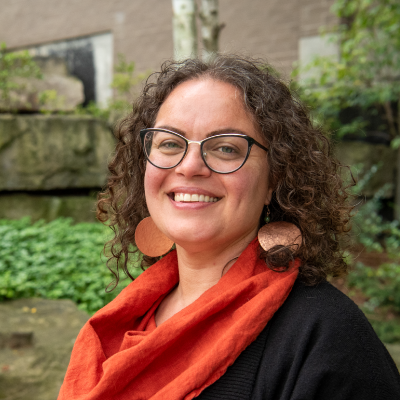
Dr. Samah Sabra (she/her/hers)
Director of Equity, Diversity, Inclusion + Accessibility,
Niagara College
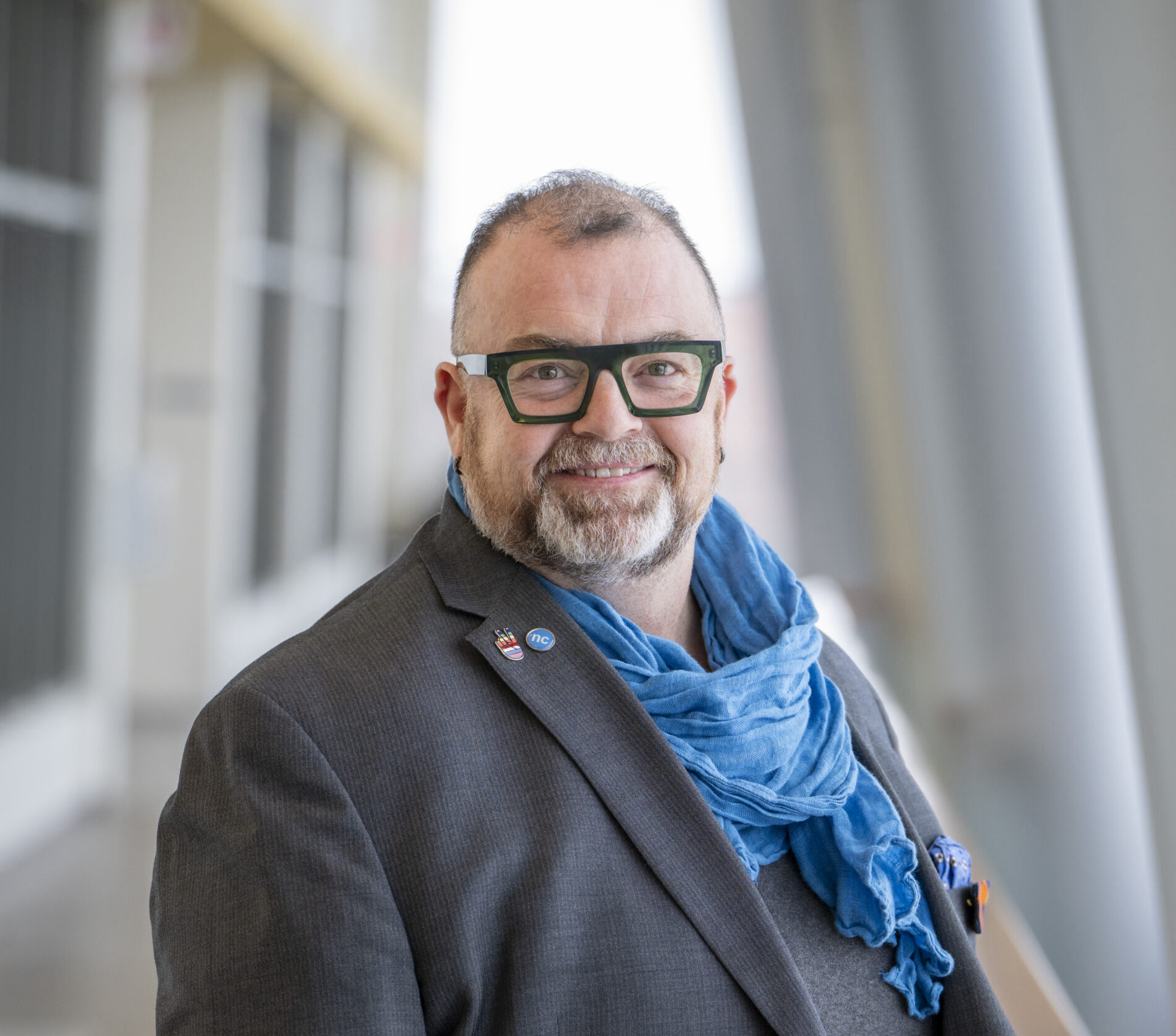
Dr. Chris McGrath (he/him/his)
Vice-President, Students,
Niagara College
Finding Your Niche in Higher Ed Marketing
- Learn how to find and get to know your niche market and understand that it is about marketing to a unique culture with unique needs that you can become a part of by building relationships.
- Explore why you should use your niche market’s channels for promotion and advertising, from print and radio to websites, event calendars, and social media, and discover why you should prioritize supporting influencers in spreading the word.
Learn more
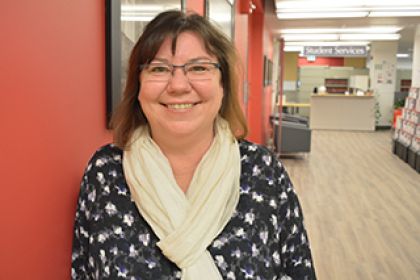
Vicky Arnold
Associate Director, Marketing and Communications,
Queen’s University
Systems Thinking is the Key to SEM Success
- Understand the core concepts and objectives of SEM
- The role of SEM on campus
- How your work and role fit into the SEM ecosystem
- Potential ways to structure your business for SEM success
- Tools to effectively implement SEM
Learn more
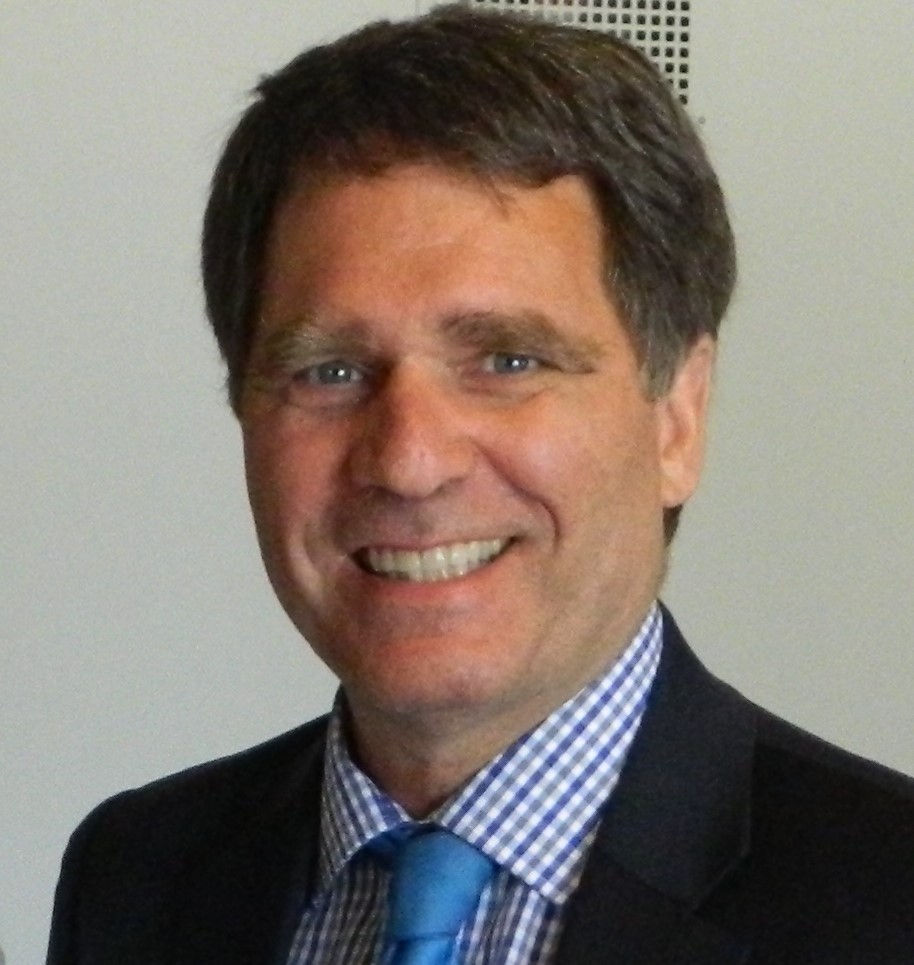
Dr. Clayton Smith
Professor, Faculty of Education, University of Windsor
Associate Faculty, Strategic Enrolment Management Graduate Certificate, Royal Roads University
Editor-in-Chief, Strategic Enrollment Management Quarterly
Senior Consultant, AACRAO Consulting
Afternoon Sessions
Advancing Indigenization, Inclusion, Equity, Diversity, Accessibility + Anti-racism (I-IDEAA) in Post-secondary Education | Part Two: Leading Change
- Discover models of educational leadership and explore their relevance to I-IDEAA in post-secondary education
- Examine and evaluate where the intersection of personal and professional values surfaces tensions for leadership practice
Learn more

Dr. Samah Sabra (she/her/hers)
Director of Equity, Diversity, Inclusion + Accessibility,
Niagara College

Dr. Chris McGrath (he/him/his)
Vice-President, Students,
Niagara College
Student Journey Mapping: Learning from Students to Unlock New Opportunities
- Understand how Student Journey maps can be used to benefit your institution
- Determine internal factors that should be considered prior to beginning the process
- Outline which audiences and sub-audiences should be mapped to meet the needed journey outcomes
Learn more
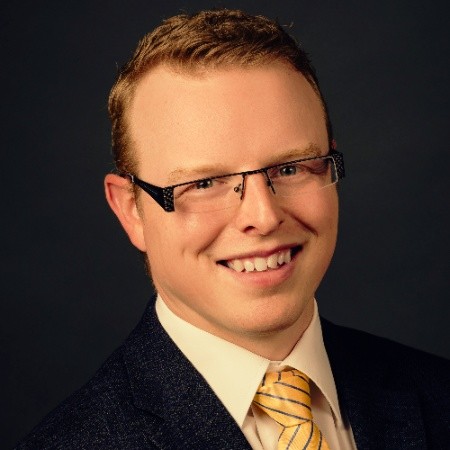
JP Rains
Director, Communications & Digital Strategy,
Laurentian University
SEMM Leaders Exchange: Unpacking Challenges & Driving Success
This session will provide an opportunity for leaders of strategic enrolment management initiatives to participate in facilitated discussions of their challenges.
Learn more

Janene Christiansen
Registrar & Associate Vice-President, Strategic Enrolment
George Brown College
Using the Right Data to Support Your Strategic Enrolment Plan
In this interactive session, participants will learn and discuss how to effectively engage in data collection and analysis to establish the "why" for their strategic enrolment plan.
Learn more

Dr. Clayton Smith
Professor, Faculty of Education, University of Windsor
Associate Faculty, Strategic Enrolment Management Graduate Certificate, Royal Roads University
Editor-in-Chief, Strategic Enrollment Management Quarterly
Senior Consultant, AACRAO Consulting
Building Hope Circuits in SEMM: Re-wiring Systems for Human Flourishing
In this session, attendees will be encouraged to expose, name, and reflect upon the complex problems facing the post-secondary sector in Canada through a particular focus on recruitment, admissions, enrolment management, and student success.
Higher education is experiencing an unprecedented paradigm shift. The systems are broken, and the systems are working exactly the way they are designed. And yet, something different is possible: the new paradigm of higher education is emerging, and how we shape what form it takes is up to us. The session takes a systems-level approach with the following high-level thought prompt: “How do we re-wire post-secondary education for human flourishing?”
In this moment of disorientation and disruption, we need practical tools and theoretical frameworks to metabolize the discomfort of seismic change. To borrow educational philosopher Parker Palmer’s strategy, we need to “name, claim, and aim” this moment to counter despair, disengagement, apathy, and stagnation.
This session will provide the opportunity to engage in a “mini” Hope Summit – part of a pan-Canadian project that gathers luminaries from across higher education to engage in re-wiring institutions around human and ecological flourishing. Dr. Jessica Riddell, founder of Hope Circuits Institute and Jarislowsky Chair of Undergraduate Teaching Excellence, has been convening hope summits across Canada over the past six months since the publication of Hope Circuits: Rewiring Universities and Other Organizations for Human Flourishing (McGill Queen’s University Press, 2024).
This session offers attendees the language to go from moment to mindset to social change movement, equipping them with the robust hope necessary to re-wire their institutions and create a new paradigm of post-secondary education centered on human and ecological flourishing in its various forms.
Learning Outcomes
- Develop a shared vocabulary to engage in systems change illuminated by the guiding values of equity, empathy, justice, creative democracy, and civic intelligence.
- Equip attendees with the tools and resources necessary to take back to their contexts – departments, divisions, campuses, academic adjacent organizations, associations – to re-wire systems in real time this week, this month, and this year.
- Participants will have developed emerging “blueprints” (e.g., design principles, to-do lists, actionable plans, commitments to action) that they can use to create meaningful change in their own institutional and community contexts.
- A focus on blueprints for strategic planning/visioning for their unit and institutional recovery and renewal through a SEMM lens.
Facilitated By

Dr. Jessica Riddell
Stephen A. Jarislowsky Chair of Undergraduate Teaching Excellence
Full Professor, Department of English, Bishop's University
3M National Teaching Fellow (2015)
Author of Hope Circuits: Rewiring Universities and other Organizations for Human Flourishing (McGill-Queen's University Press, 2024). Available now for pre-order: https://www.mqup.ca/hope-circuits-products-9780228020677.php
Author, with Dr. Lisa Dickson and Dr. Shannon Murray, of Shakespeare's Guide to Hope, Life, and Learning (University of Toronto Press, 2023). Read an excerpt here.
Senior Research Fellow, The Maple League of Universities
Adjunct Professor, Mount Allison University (Department of English)
Adjunct Professor, Acadia University (Department of History and Classics)
Adjunct Professor, St. Francis Xavier University (Department of Psychology)
Biography
Dr. Jessica Riddell is a Full Professor of Early Modern Literature in the English Department at Bishop's University (Quebec, Canada). She holds the Stephen A. Jarislowsky Chair of Undergraduate Teaching Excellence at Bishop's University; in this capacity, she explores innovative teaching and learning practices, creates mentorship opportunities for students and faculty, and participates in a wide range of conversations at the national and international levels.Dr. Riddell is also the Senior Research Fellow and former Executive Director of the Maple League of Universities, a consortium of four universities, Bishop's, Mount Allison, Acadia, and St. Francis Xavier, sharing a focused commitment to quality undergraduate education. She works across the four universities to support high impact practices as part of a 21st century liberal education. An award-winning educator and scholar, she has published on Shakespeare, institutional culture change, Inter-institutional collaborations, experiential learning, and inclusive high impact practices. Her latest book, with collaborators Dr. Lisa Dickson and Dr. Shannon Murray, is called Shakespeare's Guide to Life, Hope, and Learning (UTP 2023). She is the author of Hope Circuits: Re-wiring Universities and other organizations Dr. Riddell was awarded the 3M National Teaching Fellowship in 2015, the highest recognition in Canada for educational leadership.
Advancing Indigenization, Inclusion, Equity, Diversity, Accessibility + Anti-racism (I-IDEAA) in Post-secondary Education | Part One: Changing Leadership
*Note: This pre-conference session is being offered in two parts. While delegates may participate in one part or the other, learning outcomes can be best achieved when participating in both sessions.
Over the past seven years, organizations across the public, private and not-for-profit sectors responded in myriad ways to the call to address barriers to widening access and inclusion in society. In that time, some organizations hired people into roles across senior leadership, management, and services to meet the needs of people with diverse and intersecting social identities. Some organizations established strategies and plans to address equity, diversity, and inclusion, while also balancing commitments to Truth and Reconciliation. Some organizations hired more employees and engaged more ‘customers’ from equity [deserving] groups to ensure that their products and services were reaching further into the margins of communities and societies.
In the time since, critics claim that nominal progress has been made. Many individuals who were hired as ‘EDI leaders’, or who were designated to provide targeted services, or to engage across equity-related product and service lines, were members of the same communities organizations sought to engage. However, attrition in these designated roles is on the rise, and organizational leaders are wondering what went wrong.
Part of the answer to that question relies on understanding the ways various leadership approaches can better support and guide organizational change. Arguably, the greatest responsibility to advance Indigenization, Inclusion, Diversity, Equity, Accessibility and Anti-racism (I-IDEAA) in organizations and communities must be shared across organizations. . In this sense, the success of I-IDEAA initiatives depends on individual leadership (un)learning that serves as a powerful entry point to influence and affect change in their organizations and communities as well as developing models of leadership that shift us away from an onus on members of equity-deserving communities to individually lead the necessary organizational change. The work, in other words, needs to be undertaken in an ongoing process of leadership praxis that integrates self, leader, organization, and practice into a new approach to leading organizational change in post-secondary education.
Focus & Learning Outcomes:
- Participants will focus on themselves as leaders
- Discover models of educational leadership and explore their relevance to I-IDEAA in post-secondary education
- Examine and evaluate where the intersection of personal and professional values surfaces tensions for leadership practice
- Examine and express their leadership self-concept as it relates to I-IDEAA to articulate a personal I-IDEAA leadership statement

Dr. Samah Sabra (she/her/hers)
Director of Equity, Diversity, Inclusion + Accessibility,
Niagara College
Dr Samah Sabra is Niagara College’s inaugural Director of Equity, Diversity, Inclusion and Accessibility. With an educational background in social justice and equity and a professional workplace background in organizational and leadership development, Samah joined Niagara College in November 2021. Since then, she has worked closely with the college’s D&I Taskforce, EDI Coordinating Council, and led student and employee consultations across Niagara College to develop a collaborative Blueprint to guide the college community’s continued focus on inclusion.
Prior to Niagara, Samah worked built her career as an educator at Carleton University in teaching and educational development at Carleton University, where she played key roles in the planning and implementation of a variety of university-wide initiatives, including those related to Carleton’s Equity, Diversity and Inclusion Action Plan, Strategic Accessibility Plan Benchmarking, Healthy Workplace, and Leadership Development. She has experience as a professional development officer, teaching development coordinator, educational developer, and an instructor, having taught a first-year seminar on Social Change in Canada since 2008. Samah completed a Master of Arts in Social Justice and Equity Studies at Brock University and a Doctor of Philosophy at Carleton, where she conducted community-engaged research exploring how Arab Canadians negotiate and narrate multiple aspects of their identities as they develop communities across several generations within Ottawa.
As an educator and leader, Samah is known for her intersectional, collaborative, and thoughtful approach to building more equitable communities within higher education. This leadership approach has been critical in engaging a team of 32 EDI Catalysts from across Niagara College to implement the EDI Blueprint in ways that create opportunities and pathways for shared leadership development and processes in service of equity and inclusion.

Dr. Chris McGrath (he/him/his)
Vice-President, Students,
Niagara College
Dr. Chris McGrath is honoured to serve the Niagara College community as Vice President, Students, where he leads Athletics and Student Engagement, Enrolment Services, Marketing + Recruitment, Planning + Institutional Research, and Student Services + Wellbeing. He also advances key elements of the college’s strategy, including initiatives that enhance a wholistic student experience, support social inclusion, and advance our work with students and Indigenous partners to respond to, and support the Truth and Reconciliation Commission’s calls to action.
For over 20 years, Chris worked in senior roles in public and private postsecondary institutions in Canada and the United States, including the University of Toronto, Seneca College and the Canadian Memorial Chiropractic College and George Brown College. Chris has taught graduate courses in education at Royal Roads University and York University, where the focus of his teaching is on higher education quality, policy, and student experience. He is also an executive coach where he works with individuals and organizations to be better leaders for a better world.
Chris holds a doctoral degree in educational leadership from Western University, a master’s degree in higher education administration from the University of Vermont, and a bachelor’s degree in French studies from the University of Waterloo. His research interrogated how leadership is performed in public organizations, and how it can advance Indigenization, equity, diversity, and inclusion. His current research also explores how social justice leadership interrupts economically instrumental discourses of educational outcomes and disrupts ways of organizational being and learning.
Finding Your Niche in Higher Ed Marketing
Niche marketing helps to build your brand, reputation, and competitive edge. Finding and engaging with niche markets means your team will find it easier to reach prospective students, nurture Prospects, building quality relationships, and ultimately recruit the right applicants to your programs.
This session will provide tips for successful niche marketing using storytelling and a unique case study to highlight how to find and learn about your niche market, and make your market’s niche your own, and it will provide tips for developing and delivering content and campaigns.
Perhaps most importantly, attendees will be able to determine how to find their own niche in higher education marketing and to write their own story to effectively connect with their identified audience.
The case study describes the marketing and communications work that supported the launch of the Queen’s Certificate in Mohawk Language and Culture, which is offered by the Faculty of Arts and Science in partnership with Tsi Tyónnheht Onkwawén:na (TTO) Language and Cultural Centre and delivered in Tyendinaga Mohawk Territory.
Learning Outcomes
- Finding your niche market: Learn how to find and get to know your niche market and understand that it is about marketing to a unique culture with unique needs that you can become a part of by building relationships.
- Sustaining relationships: Hear tips for building relationships with partners, explore the difference between maintaining and sustaining them, and how you can leverage relationships and influencers in your marketing.
- Choosing channels: Explore why you should use your niche market’s channels for promotion and advertising, from print and radio to websites, event calendars, and social media, and discover why you should prioritize supporting influencers in spreading the word.
- Creating content: Learn why you should involve your partners and influencers in continuous content creation and have them vet your content, so it reflects and resonates with your niche market and tells a story.
- Finding your niche: Consider your career and career advancement and explore how niche marketing can help you to tell a different story and make you stand out from the crowd, which will build your reputation and make you more memorable and marketable, to advance your career in higher education marketing.

Vicky Arnold
Associate Director, Marketing and Communications,
Queen’s University
Vicky is the Associate Director, Marketing and Communications, for the Faculty of Arts and Science at Queen’s University.
Vicky supports the Executive Director of Communications and Marketing, and the Dean and senior leadership team, on internal and external communications. She is responsible for the development, implementation, and evaluation of marketing and communications strategies for the Faculty. This includes providing advice, tools, and expertise through the Dean’s Office to the over 30 academic units within the Faculty of Arts and Science, the largest faculty at Queen’s.
In addition to her previous positions at the School of Graduate Studies, Faculty of Education, and University Research Services at Queen’s University, Vicky has over 20 years of work experience in higher education in Canada and abroad. She has worked as a marketing consultant, program manager, and instructor. Her passion for stories and storytelling dates back to her own experience as a graduate student, when she wrote a biography as her thesis for her Master’s in Russian History.
Vicky’s passion for stories and culture has brought her around the world, as well as closer to colleagues and friends on the traditional lands of the Anishinaabe and Haudenosaunee peoples, where Queen’s University now sits.
It is also what brings her to this course - in her presentation on niche marketing, she will share her experience of working in partnership with the Faculty’s Department of Languages, Literatures and Cultures and Tsi Tyónnheht Onkwawén:na Language and Cultural Centre in Tyendinaga Mohawk Territory to launch and continue to support the unique Queen’s Certificate in Mohawk Language and Culture that is delivered in Tyendinaga.
Systems Thinking is the Key to SEM Success
There is no doubt that Canadian colleges and universities turn to Strategic Enrolment Management (SEM) for managing student enrolment. However, if you and your team do not truly understand what SEM is and the importance of looking at the institution as a whole rather than in parts, are you contributing effectively?
It's time to take your day-to-day institutional lens off and uncover how every role within your institution intersects and truly supports organizational success.
In this interactive session, participants will learn and discuss the basics of systems thinking and how institutions can introduce and support the implementation of an enrolment management ecosystem at their institutions.
Learning Outcomes
- Understand the core concepts and objectives of SEM
- The role of SEM on campus
- How your work and role fit into the SEM ecosystem
- Potential ways to structure your business for SEM success
- Tools to effectively implement SEM
Facilitated By

Dr. Clayton Smith
Professor, Faculty of Education, University of Windsor
Associate Faculty, Strategic Enrolment Management Graduate Certificate, Royal Roads University
Editor-in-Chief, Strategic Enrollment Management Quarterly
Senior Consultant, AACRAO Consulting
Over the course of his career, Dr. Smith has amassed significant knowledge and expertise in the areas of strategic enrolment management, internationalization, student affairs, and academic governance.
He is currently engaged in research to explore the promising teaching practices for teaching linguistically and culturally diverse international students by identifying the teaching practices that have high levels of international student satisfaction and perceptions of student learning, ways of achieving a sense of belonging for international students attending secondary schools, micro-aggressions experienced by international students at post-secondary institutions, and the use of Open Educational Resources (OER) to enhance interdisciplinary teaching and learning.
Dr. Smith holds a B.A. in Political Science from the University of Southern Maine, an M.A. in Political Science from Drew University, an M.P.A. in Public Administration from the University of Maine, and an Ed.D. in Higher Education from Florida State University.
Advancing Indigenization, Inclusion, Equity, Diversity, Accessibility + Anti-racism (I-IDEAA) in Post-secondary Education | Part Two: Leading Change
*Note: This pre-conference session is being offered in two parts. While delegates may participate in one part or the other, learning outcomes can be best achieved when participating in both sessions.
Over the past seven years, organizations across the public, private and not-for-profit sectors responded in myriad ways to the call to address barriers to widening access and inclusion in society. In that time, some organizations hired people into roles across senior leadership, management, and services to meet the needs of people with diverse and intersecting social identities. Some organizations established strategies and plans to address equity, diversity, and inclusion, while also balancing commitments to Truth and Reconciliation. Some organizations hired more employees and engaged more ‘customers’ from equity [deserving] groups to ensure that their products and services were reaching further into the margins of communities and societies.
In the time since, critics claim that nominal progress has been made. Many individuals who were hired as ‘EDI leaders’, or who were designated to provide targeted services, or to engage across equity-related product and service lines, were members of the same communities organizations sought to engage. However, attrition in these designated roles is on the rise, and organizational leaders are wondering what went wrong.
Part of the answer to that question relies on understanding the ways various leadership approaches can better support and guide organizational change. Arguably, the greatest responsibility to advance Indigenization, Inclusion, Diversity, Equity, Accessibility and Anti-racism (I-IDEAA) in organizations and communities must be shared across organizations. . In this sense, the success of I-IDEAA initiatives depends on individual leadership (un)learning that serves as a powerful entry point to influence and affect change in their organizations and communities as well as developing models of leadership that shift us away from an onus on members of equity-deserving communities to individually lead the necessary organizational change. The work, in other words, needs to be undertaken in an ongoing process of leadership praxis that integrates self, leader, organization, and practice into a new approach to leading organizational change in post-secondary education.
Focus & Learning Outcomes:
- Participants will focus on the organization they lead
- Discover community and partnership development approaches to developing an I-IDEAA strategy and plan
- Differentiate the range of success factors to I-IDEAA strategy and planning in PSE settings
- Reflect upon and integrate their personal I-IDEAA leadership philosophy into leading I-IDEAA strategy and planning (Part One)
- Begin to formulate an I-IDEAA action plan for their organizational scope

Dr. Samah Sabra (she/her/hers)
Director of Equity, Diversity, Inclusion + Accessibility,
Niagara College
Dr Samah Sabra is Niagara College’s inaugural Director of Equity, Diversity, Inclusion and Accessibility. With an educational background in social justice and equity and a professional workplace background in organizational and leadership development, Samah joined Niagara College in November 2021. Since then, she has worked closely with the college’s D&I Taskforce, EDI Coordinating Council, and led student and employee consultations across Niagara College to develop a collaborative Blueprint to guide the college community’s continued focus on inclusion.
Prior to Niagara, Samah worked built her career as an educator at Carleton University in teaching and educational development at Carleton University, where she played key roles in the planning and implementation of a variety of university-wide initiatives, including those related to Carleton’s Equity, Diversity and Inclusion Action Plan, Strategic Accessibility Plan Benchmarking, Healthy Workplace, and Leadership Development. She has experience as a professional development officer, teaching development coordinator, educational developer, and an instructor, having taught a first-year seminar on Social Change in Canada since 2008. Samah completed a Master of Arts in Social Justice and Equity Studies at Brock University and a Doctor of Philosophy at Carleton, where she conducted community-engaged research exploring how Arab Canadians negotiate and narrate multiple aspects of their identities as they develop communities across several generations within Ottawa.
As an educator and leader, Samah is known for her intersectional, collaborative, and thoughtful approach to building more equitable communities within higher education. This leadership approach has been critical in engaging a team of 32 EDI Catalysts from across Niagara College to implement the EDI Blueprint in ways that create opportunities and pathways for shared leadership development and processes in service of equity and inclusion.

Dr. Chris McGrath (he/him/his)
Vice-President, Students,
Niagara College
Dr. Chris McGrath is honoured to serve the Niagara College community as Vice President, Students, where he leads Athletics and Student Engagement, Enrolment Services, Marketing + Recruitment, Planning + Institutional Research, and Student Services + Wellbeing. He also advances key elements of the college’s strategy, including initiatives that enhance a wholistic student experience, support social inclusion, and advance our work with students and Indigenous partners to respond to, and support the Truth and Reconciliation Commission’s calls to action.
For over 20 years, Chris worked in senior roles in public and private postsecondary institutions in Canada and the United States, including the University of Toronto, Seneca College and the Canadian Memorial Chiropractic College and George Brown College. Chris has taught graduate courses in education at Royal Roads University and York University, where the focus of his teaching is on higher education quality, policy, and student experience. He is also an executive coach where he works with individuals and organizations to be better leaders for a better world.
Chris holds a doctoral degree in educational leadership from Western University, a master’s degree in higher education administration from the University of Vermont, and a bachelor’s degree in French studies from the University of Waterloo. His research interrogated how leadership is performed in public organizations, and how it can advance Indigenization, equity, diversity, and inclusion. His current research also explores how social justice leadership interrupts economically instrumental discourses of educational outcomes and disrupts ways of organizational being and learning.
Student Journey Mapping: Learning from Students to Unlock New Opportunities
Rooted in creating a student-centric experience, the concept of Student Journey Mapping can be a cornerstone for decision-making in postsecondary education. From changing how students are recruited to how donors are engaged, the Student Journey Mapping process can help good business practices evolve into great ones.
In this workshop, participants will dive into the process of Student Journey Mapping by exploring how to collect first-party data to shape organizational decision-making. The facilitator, JP Rains, Director, Communications & Digital Strategy at Laurentian University will share the successes and failures he’s experienced while working with over a dozen institutions helping participants improve their outcomes.
Learning Outcomes
- Understand how Student Journey maps can be used to benefit your institution
- Determine internal factors that should be considered prior to beginning the process
- Outline which audiences and sub-audiences should be mapped to meet the needed journey outcomes
- Discover how post-secondary marketing and communications professionals can apply learnings from other industries to benefit their institution
- Identify qualitative and quantitative data that should be collected and assessed during the mapping process
- Prioritize findings into an action plan outline highlighting what to optimize, opportunities to move forward and solutions to common barriers

JP Rains
Director, Communications & Digital Strategy,
Laurentian University
JP Rains serves as Director of Communications & Digital Strategy at Laurentian University and teaches Sport, Media & Communication as a lecturer in the School of Sports Administration, within the Faculty of Management at Laurentian. He also spends time as President of Rains Media, working with clients in postsecondary education on student journey mapping and search engine optimization.
He earned his Masters in Business Administration and Bachelor of Commerce, specialized in Sports Administration at Laurentian University. JP is a past chair of the board for the Post Secondary Education Web Conference of Canada, a past board member with the Laurentian University Alumni Association, and the Chair of the Golf Marathon Sudbury an organization which has raised over $500,000 for children's health in Sudbury. In 2012, he was named to Sudbury's Top 40 under 40.
He is a published author in the Journal of Education Advancement and Marketing.
SEMM Leaders Exchange: Unpacking Challenges & Driving Success
Leading SEMM initiatives on campus requires overcoming many roadblocks, educating colleagues, gaining buy-in from leadership and academics, and a lot of stamina! Often it means taking responsibility for outcomes without always having the authority to make changes. All of this can be quite isolating. But chances are good that someone has been through similar experiences elsewhere and has ideas to share and support your efforts.
This session will provide an opportunity for leaders of strategic enrolment management initiatives to participate in facilitated discussions of their challenges. Participants will be invited to share their experiences with SEM planning and implementation and benefit from the perspectives and insights of their peers from across the country.
Participants will leave with a fresh perspective, new ideas, and energized by the support of peers.
Facilitated By

Janene Christiansen
Registrar & Associate Vice-President, Strategic Enrolment
George Brown College
Using the Right Data to Support Your Strategic Enrolment Plan
In this interactive session, participants will learn and discuss how to effectively engage in data collection and analysis to establish the "why" for their strategic enrolment plan. Topics will include data flow through the student lifecycle, data types (internal and external), environmental scanning, situational analysis, and evaluation/assessment. Participants will work in groups as they apply data principles to enrolment scenarios.
Facilitated By

Dr. Clayton Smith
Professor, Faculty of Education, University of Windsor
Associate Faculty, Strategic Enrolment Management Graduate Certificate, Royal Roads University
Editor-in-Chief, Strategic Enrollment Management Quarterly
Senior Consultant, AACRAO Consulting
Over the course of his career, Dr. Smith has amassed significant knowledge and expertise in the areas of strategic enrolment management, internationalization, student affairs, and academic governance.
He is currently engaged in research to explore the promising teaching practices for teaching linguistically and culturally diverse international students by identifying the teaching practices that have high levels of international student satisfaction and perceptions of student learning, ways of achieving a sense of belonging for international students attending secondary schools, micro-aggressions experienced by international students at post-secondary institutions, and the use of Open Educational Resources (OER) to enhance interdisciplinary teaching and learning.
Dr. Smith holds a B.A. in Political Science from the University of Southern Maine, an M.A. in Political Science from Drew University, an M.P.A. in Public Administration from the University of Maine, and an Ed.D. in Higher Education from Florida State University.
Pre-Conference Workshop Rates
Half-day
Your registration includes access to 1 of our 8 pre-conference sessions.
$345 $495
per person
Early-bird rate valid until
July 26
Registered Charity - Registration Discount
If you're employed by a registered charity, please send an email to Jennifer Powell outlining your organizations involvement in the Canadian post-secondary sector.
Please include your registered charity number in the subject line.
